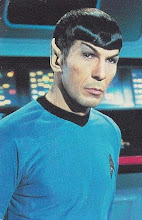
Ach, it's a sad day when one of the cinematic gems of English cinema is taken from us.
Film director Anthony Minghella has died, aged 54

(Patrick Hannagan/The Times)
The film director Anthony Minghella, whose film The English Patient won nine Oscars
Anthony Minghella, the Oscar-winning film director and until recently chairman of the British Film Institute, has died today, his agent said.
Mr Minghella died this morning at Charing Cross Hospital in Hammersmith, West London, after suffering a brain haemorrhage. “He was operated on last week for a growth in his neck and the operation seemed to have gone well," said his agent, Judy Daish. "At 5am today he had a fatal haemorrhage."
The 54-year-old was both critically acclaimed and regarded as one of Hollywood’s most bankable assets, after winning nine Oscars including Best Film and Best Director for his 1996 romantic weepieThe English Patient, which he also scripted.
His latest film, The No 1 Ladies Detective Agency, a 90 minute drama based on the bestselling book by Alexander McCall Smith, is to be screened on BBC One this Easter. He had been due to oversee a spin-off drama series of 13 further one hour episodes based on the detective agency characters. Two further film projects, New York, I Love You and The Ninth Life of Louis Drax, which he had both written and planned to direct, are still in production.
Minghella rose swiftly to prominence after his first film Truly Madly Deeply transferred from British television to the big screen and became a runaway success. The film also made a star of the actor Alan Rickman who played the whingeing ghostly hero.
His 1999 drama The Talented Mr Ripley starring Jude Law, Matt Damon and Gwyneth Paltrow did less well at the box office, though the critics praised it. Law also starred in Cold Mountain, his 2003 American civil war drama.
Born on the Isle of Wight one of five children of Italian immigrants who ran Minghella’s Ice-cream Parlour in Ryde, and educated at Hull University, Minghella claimed that his film influences were the Polish director Krzysztof Kieslowski, known for his Three Colours trilogy, and China’s Zhang Yimou, who directed Raise the Red Lantern.
In his youth he made a living from radio plays, gradually moving into television work before Truly Madly Deeply made his name.
A modest man, he regarded himself as an outsider from the English Establishment. He joked when he attended a charity benefit at the Royal Yacht Squadron in Cowes that the last time he had been there he had been asked to drive his ice-cream van round to the back door, and described his surprise at the way that he was unreservedly and immediately accepted by the Hollywood film aristocracy.
"So suddenly the telephone rings and it’s Meryl Streep calling, and I think: 'It must be my mother or my sister pretending to be Meryl Streep', but actually it IS Meryl Streep and I felt quite giddy," Minghella said in an interview before the Bafta film awards this year.
“I thought I could pretend I was a director which I never thought I was, I always thought I was a writer who had directed this one film. And I tried to be a director and discovered, I think conclusively, that I am not a director, I am a writer who is able to direct the films he writes."
He was elected chairman of the British Film Institute (BFI) in 2003, but stood down earlier this month to be replaced by Greg Dyke. Tributes poured in. Fellow British film director Lord Puttnam said the death was a dreadful blow to the industry. "I am shattered. He was a very important person in the film community because not only was he a fine, fine writer . . . and made the transfer into becoming a really excellent director, he was also a really beautiful man.
"I just spoke to Alan Parker and it was the line Alan used: he was a beautiful man; he was a lot of fun to be with; he was thoughtful and intelligent.
"Most importantly of all for me, he was one of the few filmmakers who really stepped up to the responsibility — he worked his guts out at the BFI to be an effective chair and was an extremely effective chair with the result being that the BFI to an extent is rising from the ashes as never before.
"He’s going to be hugely missed. This is a shattering blow from someone who was a major figure in an important industry and had a lot to go on and contribute."
Lord Puttnam said Minghella had been "a storyteller in the classic British tradition". He compared him with David Lean, saying he was particularly good at inspiring great performances from actresses.
Tony Blair, the former Prime Minister, said the death of Minghella, who directed him in a party election broadcast for Labour, had left him shocked and sad. “Anthony Minghella was a wonderful human being, creative and brilliant, but still humble, gentle and a joy to be with," Mr Blair said.
“Whatever I did with him, personally or professionally, left me with complete admiration for him, as a character and as an artist of the highest calibre.”
Minghella's film for the 2005 general election campaign showed Mr Blair and then Chancellor Gordon Brown chatting informally about the fruits of their joint efforts.


0 comments:
Post a Comment